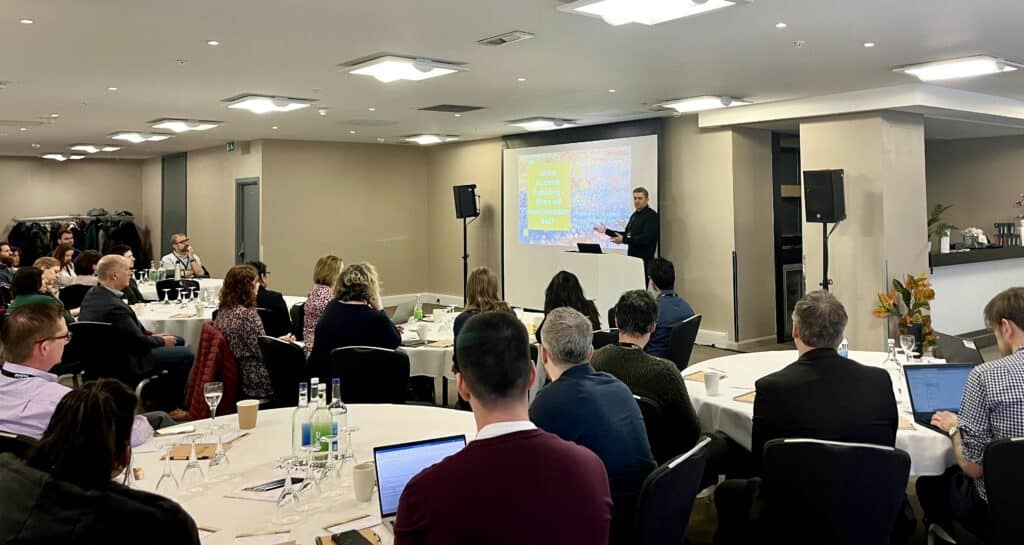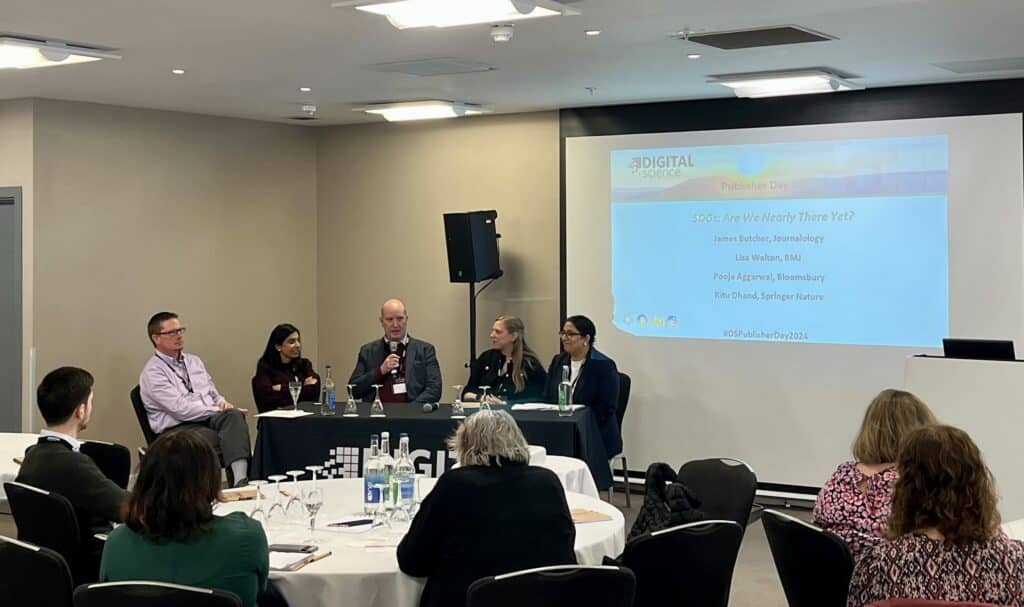Failure Analysis and Factors Influencing Spline Wear in Hydraulic Motors...
Get Connected Here: ================== Facebook :
Publisher Day 2024: The road ahead for scholarly publishing
In the lead up to the London Book Fair, on Monday 11th March we held our annual Digital Science Publisher Day. Guided by the overarching theme of ‘The Road Ahead’, the in-person event provided an opportunity to explore what the future roadmap for scholarly publishing may hold. It was an action-packed day for the publishing community, with keynotes, panel discussions, and plenty of networking!
After a welcome and introduction from Digital Science’s MD of Publisher Sales, Helen Cooke, we kicked off the day with a keynote from Mark Hanhel, our VP of Open Research. Mark shared where he predicts experimentation will lead in the ever-changing global academic publishing landscape, and what Digital Science can do to support publishers with data, tools and insights.

Following Mark’s keynote, we had a series of lightning talks to share product updates and roadmaps for our publisher solutions. Amye Kedall, VP of Product, presented exciting updates from Dimensions and Altmetric, and explained how Digital Science is adopting AI in our product development plans to help publishers drive discovery of content and do more with less.
Claire Turner, SVP Commercial, shared Figshare’s updated roadmap format. She explained how the Figshare team plans to expand their capabilities to support capturing engaging content, streamline researcher experiences, enhance administrative workflows, and update core capabilities.
Next up was Juan Castro, CEO and Co-Founder of Writefull, who presented on Writefull’s AI-powered language and metadata solutions for publishers, and how they have streamlined the workflow of a leading chemistry publisher.
After a networking break, we held our first panel of the day. The panel was moderated by Cathy Holland from Digital Science, who was joined by Andreea Moldovan from Sage, Jon Treadway from Great North Wood Consulting, Becky Moakes from Maverick, and Ian Potter from Frontiers. The panel had a lively discussion on the journey of adapting to AI in scholarly publishing – weighing up the positive and negative impacts, and looking ahead to see whether AI is, or will ever be, the new normal.
The next panel (pictured below) was moderated by Tyler Ruse of Digital Science. Pooja Aggarwal from Bloomsbury, James Butcher from Journalology, Ritu Dhand from Springer Nature, and Lisa Walton from BMJ. They discussed how the UN’s Sustainable Development Goals (SDGs) are affecting publishing and editorial strategies, how to measure success in the SDGs, the importance of the SDG Publishers Compact, and what the path to 2030 could look like.

Following a publishing industry quiz, we had our third and final panel of the day, which was moderated by Digital Science’s Nigel Thompson. Nigel was joined by Hannah Barnsley from the Royal Society of Chemistry, Simon Boisseau from Accucoms, Bernie Folan from OASPA, and Rhodri Jackson from Oxford University Press. The panel spoke about open access trends and models, the role wider initiatives play in supporting OA, and where they think the OA movement is heading.
As the day drew to a close, Jessica Miles from Holtzbrinck Publishing Group delivered a thought-provoking keynote, reflecting on the past, present, and future of STM publishing workflows. She spoke about how the workflows have been shaped by distinct periods of digital transformation: from establishing infrastructure for digital content creation in the move from print to digital, to the expansion of the publishing workflow influenced by AI and machine learning, to how AI will impact the fundamental value proposition of STM publishing going forward.
We concluded the day by enjoying some networking drinks. Once again, we’d like to send our heartfelt thanks to everyone who attended and spoke at this year’s Publisher Day, and we look forward to next year’s event.
Want to learn more about our solutions for publishers? Visit our webpage, or get in touch with the publisher team at: publishing@digital-science.com

About the Author
Olivia King, Marketing Segment Lead, Publisher | Digital Science
Olivia King is Marketing Segment Lead for the Publisher segment at Digital Science. In this role, she manages the publisher marketing activities and strategy across the Digital Science publisher solutions, including Writefull, Altmetric, Dimensions and Figshare. Before joining Digital Science, Olivia worked in journals marketing at Sage Publishing.
The post Publisher Day 2024: The road ahead for scholarly publishing appeared first on Digital Science.
from Digital Science https://ift.tt/lVEfro5
International Research Awards on New Science Inventions
News: DeepMind AI with built-in fact-checker makes mathematical discoveries
International Research Awards on New Science Inventions
Visit: nesin.sciencefather.com
The AI company DeepMind claims it has developed a way to harness the creativity of chatbots to solve mathematical problems while filtering out mistakes
Visit Our Website: https://new-science-inventions.sciencefather.com/
Conference Nomination: https://x-i.me/nesiabst2
Award Nomination: https://x-i.me/abdunews
Contact us: nesinenquiry@sciencefather.com
#ResearchAwards #ScienceInventions #InnovationRecognition #ScienceInnovation #IndustryInnovation #ResearchExcellence #TechInnovation #ScientificDiscovery #CuttingEdgeScience #InnovationAwards #NewTechnologies #IndustryLeadership #STEMInnovation #ResearchRecognition #InnovativeResearch #ScienceFather #International #awards #Research #Awards #New #Science #Inventions #innovation #Technology #Recognition #Program #Science #Advancement #Achievement #Award #artificialintelligence #Intelligence #Biomedical #Engineering #renewableenergy #Nanotechnology #ComputerScience #Physics #Environmental #Science #Collaboration #Excellence #ScientificResearch #Knowledge #Exchange #scienceFather #Academic #Conferences #Scholarly #Publications #Networking
Featured Post
🔬 Dual-Gas Detection Using Direct Absorption & Wavelength Modulation Spectroscopy📡
🔬 Dual-gas sensing techniques are gaining significant attention in environmental and industrial monitoring. By combining Direct Absorption...

Popular
-
Word choice may seem out of place among the myriad factors that can influence outcomes for a complex condition like alcohol use disorder (...
-
RWS prides itself on the depth and breadth of the Researchers who power our business and deliver value to our clients. We are always accepti...
-
The National Ignition Facility (NIF) has achieved fusion ignition using powerful laser systems and x-rays. Image credit: NIF, Lawrence ...
 / kaylee.rowan.92
/ kaylee.rowan.92  / scienceinventi1
/ scienceinventi1  / scienceinven..
/ scienceinven..  / kayleerowan
/ kayleerowan  / kaylee_rowan_
/ kaylee_rowan_  / .
/ . 
